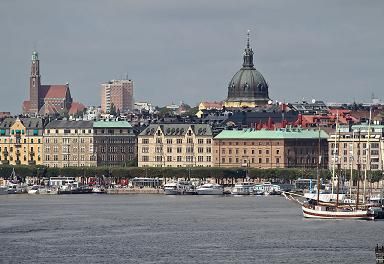World Water Week opens in Stockholm
The 24th World Water Week opened in Stockholm, Sweden on Monday and is being attended by politicians, scientists and the private sector who are debating the sustainable use of water and resource conservation

The 24th World Water Week opened in Stockholm, Sweden on Monday and is being attended by politicians, scientists and the private sector who are debating the sustainable use of water and resource conservation.
Over 2,500 people have gathered in Sweden’s capital for the event which is organised by the Stockholm International Water Institute (SIWI).
Focus areas of the event will be the energy-water nexus and how crucial this is to sustainable development.
Torgny Holmgren, executive director of World Water Week, said: “The challenges are immense. With the global demand for water projected to grow by 55 per cent between 2000 and 2050 and electricity demand expected to increase by 50 per cent in the next two decades, there is an urgent need for a closer relationship between the energy and water communities if we are to provide solutions for all peoples to prosper.”
Climate change, urbanisation and rapid population growth is putting water and energy resources under growing pressure; a situation which is proving to be particularly challenging and damaging for developing nations.
SIWI explored the energy-water nexus in a report released during the event. The Shale Gas and Hydraulic Fracturing: Framing the Water Issue addresses fracking and the large amounts of water used in the process of extracting shale gas.
Kandeh K. Yumkella, UN Under-Secretary-General, said: “One of the major challenges that our world faces today is providing modern energy services and water for billions without both. As global demand for both energy and water increases, we must think about the way we produce and use both to ensure shared prosperity for all citizens, protect the environment, achieve socio-economic development and secure peace and stability.”
Professor John Briscoe, this year's Stockholm Water Prize laureate, said: "developing countries face big challenges. They have yet to mobilize those resources." He added that there is "no eternal solution [to the water crisis], neither here nor there. Instead, there is a cycle of challenges and responses."
In over 100 seminars, workshops and events throughout the week, delegates will discuss ongoing and future work and collaboration between the energy and water communities.





